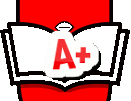Please write the answers under each questions, use 5 references at least 5 years old and nursing related. Please refer to the marking scheme as i wish to get a really
good mark.
1. Mr. Heron is a client of your agency. He lives in a retirement home but uses home-support services from your agency two mornings a week. You have been
visiting Mr. Heron for a month now. Although he is forgetful, he is a precise person who has definite preferences as to how things should be done.
Four times out of the eight times you have visited Mr. Heron, he has met you at the elevator near his room. Sometimes he is fully dressed; sometimes he is only
partially dressed. He is always very anxious. He tells you, “The train is leaving and I have to get on it or I will be late.” You know that Mr. Heron was a high-school
principal who lived in Mississauga and worked in downtown Toronto.
a. Explain how Mr. Heron’s personality traits contribute to his reaction? (2 marks)
b. If Mr. Heron’s diagnosis is Alzheimer’s disease, how might memory loss contribute to his reaction? (2 marks)
c. Using effective communication techniques, how would you respond to Mr. Heron’s statement? Explain why this response would be helpful. (4 marks)
2. Why is depression often mistaken for dementia? (2 marks)
3. Consider the activity of eating. How would each stage (Early, Middle and Late) of Alzheimer’s affect a person’s ability to eat? As a PSW identify one
strategy for each stage that you could use to assist a person with eating. Explain why each strategy would be appropriate and effective.
(3 changes, 3 strategies and 3 explanations for a total of 9 marks)
4. Consider a person diagnosed with Middle-Stage Alzheimer’s living at home. List 5 safety measures to use in this person’s home. Explain why each safety
measure is appropriate with specific references to behavioural, cognitive and sensory changes experienced by a person with Middle-Stage Alzheimer’s. (10 marks)
5. Mrs. Green is a client of your agency. She has a diagnosis of vascular dementia. She is only mildly forgetful from time to time. She takes comfort in
“getting answers” although she may forget them. She says to you, “Have you seen my daughter? I haven’t seen her in a long time.” You know that the daughter visits
on a regular basis, but are not sure when she was last at your client’s home.
a. What is multi-infarct dementia? (2 marks)
b. How might Mrs. Green’s forgetfulness interfere with her safety needs? (2 marks)
d. Using effective communication techniques, how would you respond to Mrs. Green’s question? Explain why this response would be helpful. (4 marks)
6. Mr. Black, age 89, has multi-infarct dementia with severe memory loss, impaired judgment, and mood swings. He is also profoundly deaf and has some vision
problems. He is increasingly weak and unsteady on his feet and needs to be supervised and assisted with all activities of daily living. He lives in a private room in
a long-term-care facility. He will not join in any activities and often refuses to go to the dining room for his meals. Sometimes he has angry outbursts and is often
found crying in his room. He says that he should be able to go out and have a job again. He feels that everything has been taken away from him. He often expresses
that his life is worthless and he wishes he could die.
Mrs. Black visits her husband every day and attempts to rationalize with him and talk him out of his bad moods. She appears to care for him very much and often tidies
his room and changes his clothes. He usually unloads all of his feelings on her and she goes away feeling frustrated and guilty.
a. Explain how failing physical health, affects Mr. Black’s mental and emotional health. (2 marks)
b. Explain how institutionalization and loss affect Mr. Black’s mental health. (2 marks)
c. What are the advantages that Mr. and Mrs. Black each experience as a result of Mrs. Black’s visits? (2 marks)
d. What are the disadvantages that Mr. and Mrs. Black each experience as a result of Mrs. Black’s visits? (2 marks)
SEE MARKING RUBRIC ON PAGE 3
Total Possible Marks from Questions #1 – 6 45
Grammar, Spelling, Citations, and References Rubric
3 2 1 0
Zero spelling, punctuation, capitalization, grammar, or usage errors One, two or three spelling, punctuation, capitalization, grammar, or usage errors Four or
five spelling, punctuation, capitalization, grammar, or usage errors More than five spelling, punctuation, capitalization, grammar, or usage errors
In-text citations are included for all paraphrased material In-text citations are included for 75 – 99% of paraphrased material In-text citations are included
for 50 – 75% of paraphrased material In-text citations are included for less than 50% of paraphrased material – SEE BELOW
Assignment incorporates at least three sources (including author, title, source & date) Assignment incorporates two sources (including author, title, source &
date) Assignment incorporates one source (including author, title, source & date) Assignment incorporates zero sources – SEE BELOW
The reference list accurately reflects all citations The reference list accurately reflects 75 – 99% of citations The reference list accurately reflects 50 – 75%
of citations The reference list accurately reflects less than 50% of citations
Two or fewer direct quotes used Three direct quotes used Four direct quotes used Five or more direct quotes used
TOTAL 60
All assignments will be processed with the Safe Assign tool. Plagiarism will result in a ZERO-grade assessed to the assignment. Note that this is the minimum penalty
for a first offence. As indicated in the Program Guide, the college reserves the right to assess academic misconduct penalties up to and including course, program or
college suspension depending on either the nature of the incident or the cumulative effect of a subsequent incident










